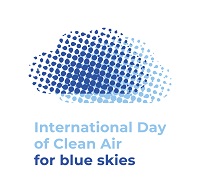While air pollution is often perceived as a local or regional problem, air pollution also has a global dimension. At least three aspects of air pollution as a global problem can be distinguished: 1) the long-range transport of air pollution emitted in one country can affect people and the environment of another country; 2) there are similar air pollution problems in different countries that can be solved using the same measures; and 3) the implementation of national policies might have implications for other countries in so far as they can lead to shifting environmental problems to another country. In addition, air pollution is the central link in the interaction between ozone, nitrogen, climate change and ecosystems, which increasingly requires an integrated approach to environmental policymaking, also beyond the UNECE region.
Addressing these pollution problems requires cooperation at the scientific and the policy level, including with other countries and regions. This also includes working with organizations and networks within the UN system and beyond to increase synergies and coordination and enhance outreach and information sharing.
The need for coordinated actions has been recognized in many different international fora. The UNECE Convention on Long-range Transboundary Air Pollution has 40 years of experience in tackling transboundary air pollution on a regional basis and is keen to cooperate with other regions to ascertain common challenges and to exchange experiences on air pollution policy.
At its thirty-ninth session of the Executive Body for the Convention (10-14 December 2018), a first Global event on clean air was organized with the objective to discuss cooperation on clean air. Representatives of countries, organizations and networks from different regions shared experience in reducing air pollution with a focus on common challenges, policy instruments and best practices. Possible options to further enhance inter-regional information sharing and cooperation, building on existing national and regional activities were discussed.
The Executive Body also agreed to establish a forum for collaboration on reducing air pollution. The forum was launched at the 40th anniversary Special Session on 11 and 12 December 2019 and the Executive Body adopted decision 2019/5 on the establishment of the forum. The purpose of the forum is to provide a shared response to help address the threat to human health and ecosystems from air pollution. It also provides a platform for exchange and mutual learning and a repository of technical information.
In 2021, the Executive Body adopted decision 2021/5 on the establishment of the Task Force for International Cooperation on Air Pollution, operationalizing the forum established in 2019. The Task Force for International Cooperation on Air Pollution will promote international collaboration towards preventing and reducing air pollution to improve air quality globally. To learn more about the Forum and the Task Force, please click here.


